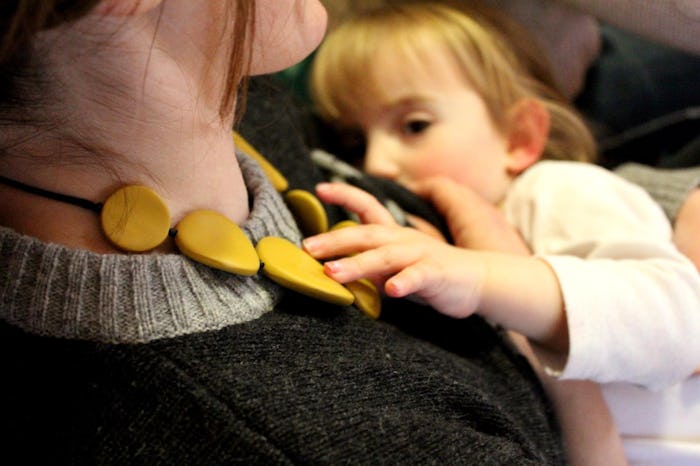When Does Extended Breastfeeding Start? Plus 7 Tips To Make It Through
Breastfeeding, like most aspects of motherhood, looks different for every mom. Some women find it incredibly difficult to get started, while others find it comes more "naturally." Some women choose to supplement with formula, while others exclusively breastfeed. Eventually, the time comes when you'll think about when you plan to stop breastfeeding. Whether your baby is a newborn or into toddlerhood, you've probably heard of women who nurse their babies long after the recommended year. When exactly does extended breastfeeding start and is it right for you and your baby?
As mentioned above, most experts recommend exclusive breastfeeding for the first six months, and then nursing as well as feeding solids until your baby turns one. It's well established that breast milk provides your baby with the best possible nutrition, especially in the early months. However, there's less buzz about the benefits extended breastfeeding may provide your baby.
Besides the convenience of nursing your baby, extended breastfeeding offers the same amount of benefits to a toddler as it does to a newborn. Baby Center notes that stronger immune systems, is one of the benefits, while Time acknowledges that and lowered rates of childhood cancer and obesity rates are also positive side effects of breast feeding.
If you do decide to prolong your time breastfeeding your child, here are a few tips to help you make it through.
1Don't Worry About What Anyone Else Thinks
Your baby is you and your partner's responsibility and no one else's. If you get condescending looks or rude comments, ignore the haters and find comfort knowing that you're doing the best thing for your little.
2Leave It Up To Your Baby
Most babies will naturally start to nurse less and less and want solids more often. Extended breastfeeding is no exception: when it's time to stop, you're child will let you know.
3Stay Healthy
Just as it's important to eat and drink enough when you've just started nursing, you need to make sure you're eating healthy foods and getting enough fluids every day. Breastfeeding is hard work and if you're not supplementing the calories you're burning, Women's Health notes that you'll become exhausted.
4Know The Law
Of course, there is no legal limit of age for breastfeeding your child. The bottom line is— you are allowed to breastfeed anywhere you want.
5Find Support
Find a few supportive friends or fellow breastfeeding moms to support you on the hard days.
6Read Up
Buy yourself a few books for education, encouragement, or even for laughs on the days when you think "dear God what have I gotten myself into?"
7Tell Yourself How Awesome You Are
On the daily. Just do it. Just because not many moms go the route you've chosen to, doesn't mean it's not healthy, inspirational and rewarding.
